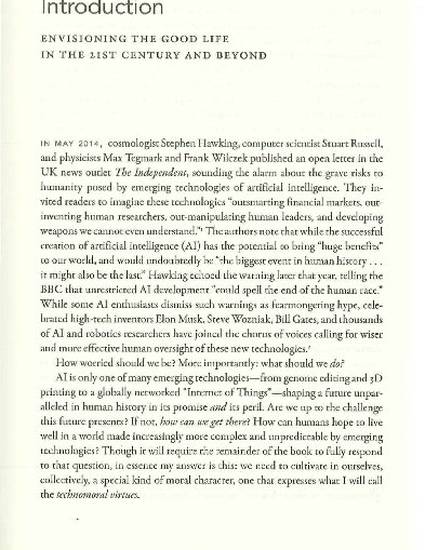
In May 2014 cosmologist Stephen Hawking, computer scientist Stuart Russell, and physicists Max Tegmark and Frank Wilczek published an open letter in the UK news outlet The Independent, sounding the alarm about the grave risks to humanity posed by emerging technologies of artificial intelligence. They invited readers to imagine these technologies "outsmarting financial markets, out-inventing human researchers, out-manipulating human leaders, and developing weapons we cannot even understand." The authors note that while the successful creation of artificial intelligence (AI) has the potential to bring "huge benefits" to our world, and would undoubtedly be "the biggest event in human history ... it might also be the last." Hawking echoed the warning later that year, telling the BBC that unrestricted AI development "could spell the end of the human race." While some AI enthusiasts dismiss such warnings as fearmongering hype, celebrated high-tech inventors Elon Musk, Steve Wozniak, Bill Gates, and thousands of AI and robotics researchers have joined the chorus of voices calling for wiser and more effective human oversight of these new technologies.
How worried should we be? More importantly: what should we do?
AI is only one of many emerging technologies-from genome editing and 3D printing to a globally networked "Internet of Things" -shaping a future unparalleled in human history in its promise and its peril. Are we up to the challenge this future presents? If not, how can we get there? How can htmlans hope to live well in a world made increasingly more complex and unpredictable by emerging technologies? Though it will require the remainder of the book to fully respond to that question, in essence my answer is this: we need to cultivate in ow-selves, collectively, a special kind of moral character, one that expresses what I will call the technomoral virtues.

This material was originally published in Technology and the Virtues: A Philosophical Guide to a Future Worth Wanting by Shannon Vallor, and has been reproduced by permission of Oxford University Press https://global.oup.com/academic/product/technology-and-the-virtues-9780190498511?cc=us&lang=en&.
For permission to reuse this material, please visit http://www.oup.co.uk/academic/rights/permissions.